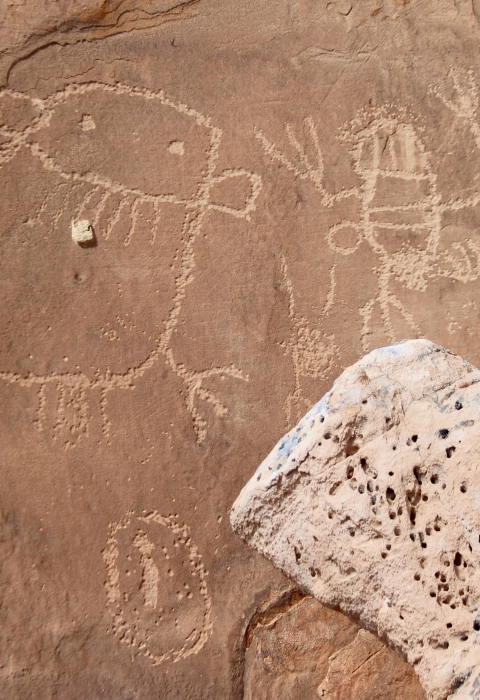What We Do
Conserving this nation’s fish, wildfire, plants and the habitats are enhanced when successful partnership with Tribes are established. Indian Tribal governments manage, and their Tribal members influence some of the most important habitats on reservations, off reservations, Tribal owned lands and treaty reserved areas. The Service plays an important role supporting Tribes as they exercise their sovereignty in the management of their fish and wildlife resources on 55 million acres. Consultation and collaborative planning, we support Tribes through biological data collection, uphold the right for religious and cultural use of protected species such as eagle feathers and natural resource data assessments.
Here are ways the Native American Liaisons support staff in carrying out the Service’s mission with Indian Tribes and the general public.
- Serve as the liaison between the Service and federally recognized Tribes, ensuring the federal trust responsibility is center to the coordination efforts.
- Build opportunities for positive working relationships with federally recognized Tribes.
- Educate Service staff on Tribal cultural sensitivity and raise awareness regarding the Service's fiduciary obligations as they relate to Tribes.
- Inform Tribes regarding the Service's federal mandates and mission.
- Participate in Tribal (or Service) annual conferences, meetings or forums relating to mutual natural resource or fish and wildlife topics.
- Coordinate the Service’s Native American partnerships with other federal agencies to benefit Tribal activities and work cooperatively on mutual interests.
- Help Service staff identify Tribal leaders, natural resource experts from Indian Country and Tribal conservation partners.
- Ensure the Service is fulfilling its federal Indian trust responsibility to federally-recognized Tribes.
- Ensure effective communication with Tribal governments includes acknowledgment, open and transparent dialogue, and interpersonal interactions that depend on mutual respect and understanding. Communications with Tribal governments will be proactive, begin early in the planning process, and occur throughout various levels of our organization. Implement the Service's Native American Policy.
- Promote training opportunities at the National Conservation Training Center for Tribes and their staff.
- At the request of an elected Tribal official, assist in developing and preparing agreements relating to co-stewardship, funding, or mutual activities involving natural resources of interest.
- Notify Tribes regarding changes in Service policy, regulation, initiatives and Inform Tribes of new laws enacted by congress that may affect Tribal governments or resources.
- Encourage day-to-day staff level discourse. With Tribal fish and wildlife professionals.
Our Services
Funding
Tribal Wildlife Grants are a competitive funding opportunity for federally recognized tribal governments to develop and implement programs for wildlife and their habitat, including species of cultural or traditional importance and species that are not hunted or fished. Tribal Wildlife Grants have helped tribal governments with planning for wildlife and habitat conservation, fish and wildlife conservation and management actions, fish and wildlife related laboratory and field research, natural history studies, habitat mapping, field surveys and population monitoring, habitat preservation, conservation easements, public education that is relevant to the project salaries, equipment, consultant services, subcontracts, acquisitions and travel.
Since 2003, 111.6 million has been awarded to Native American tribes through the Tribal Wildlife Grants program by providing support for 626 conservation projects administered by participating federally recognized tribes.
Visit the Tribal Wildlife Grants page for information and application process.
Questions About Applying or about the Grant Process?
Contact the National Native American Programs Coordinator or the Wildlife and Sport Fish Restoration Program to speak with a Tribal Wildlife Grant specialist.
Our Laws and Regulations
Endangered Species
The Service and tribes have a common goal of conserving sensitive species (including candidate, proposed, and listed species) and the ecosystems upon which they depend. Tribal lands are not federal public lands or part of the public domain, and are not subject to federal public land laws. They were retained by tribes or were set aside for tribal use pursuant to treaties, statutes, judicial decisions, executive orders or agreements. These lands are managed by tribes in accordance with tribal goals and objectives, within the framework of applicable laws. Many tribal lands have remained untouched by conventional land use practices and therefore are an island of high quality ecosystems, attracting many sensitive species.
Please visit Ecological Services for more information regarding the Endangered Species Act and our efforts for federally protected species.
Tribal leaders and representatives may reach to the Native American Liaison in their region to learn about the work we do with tribes.
